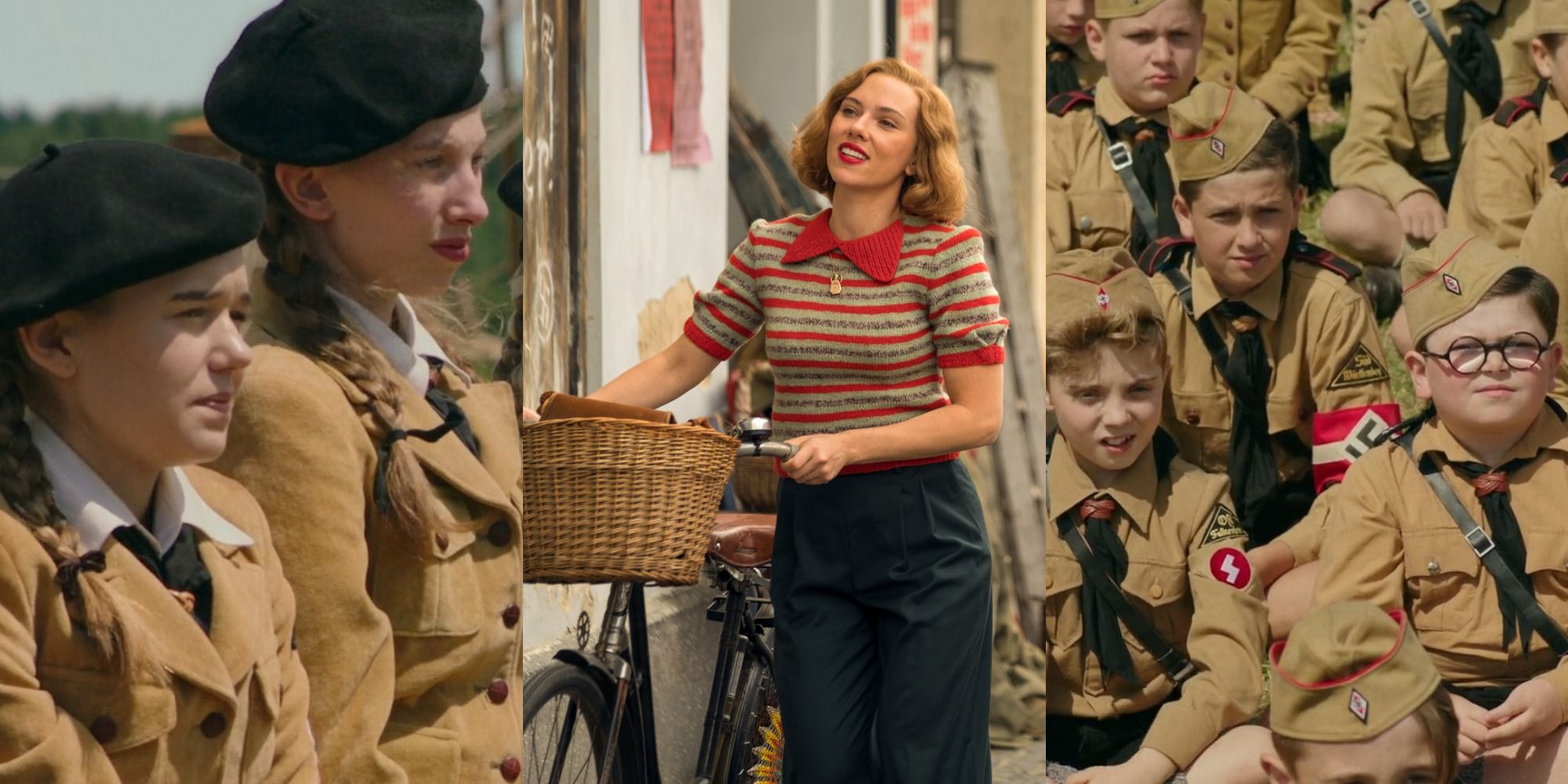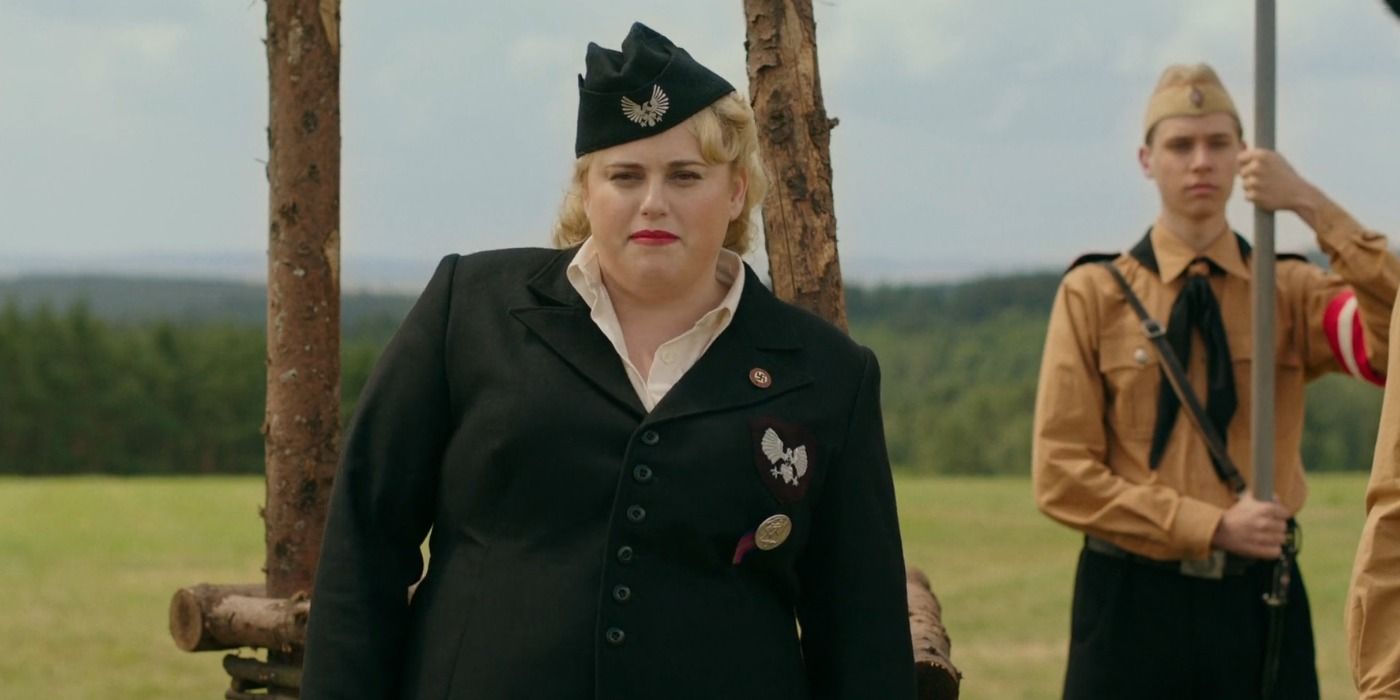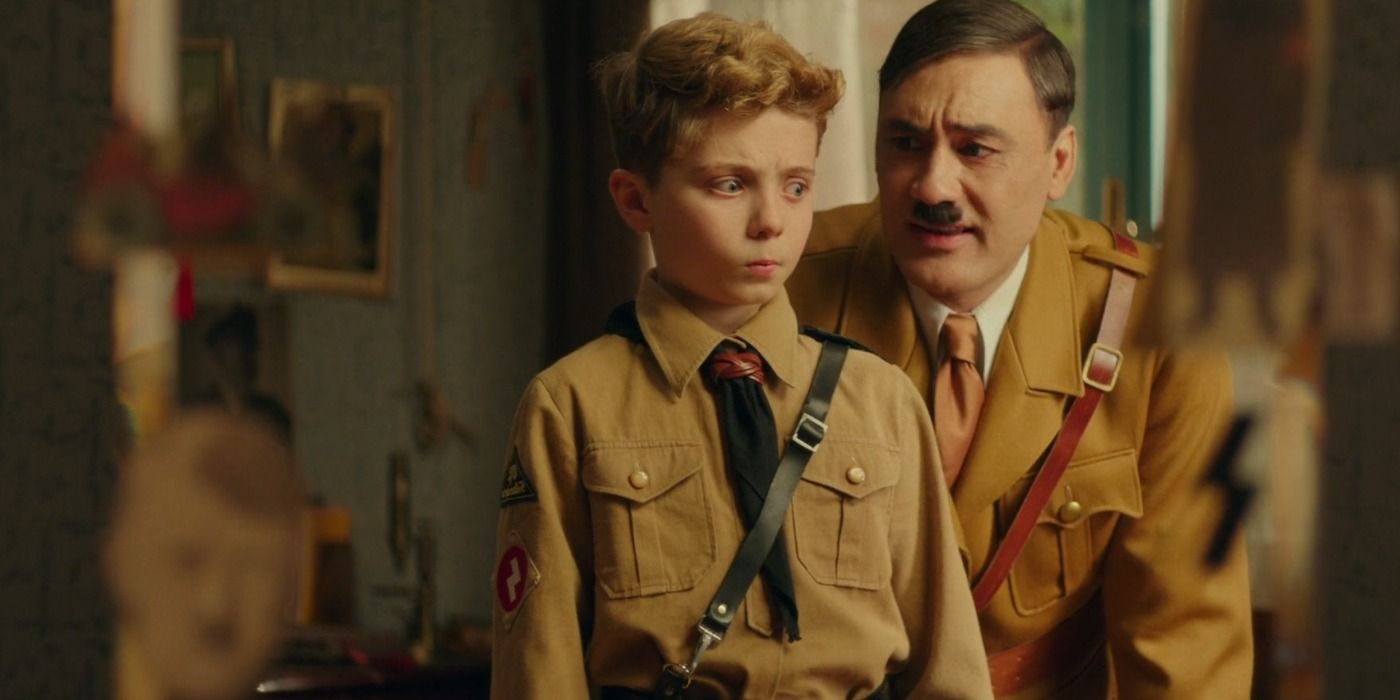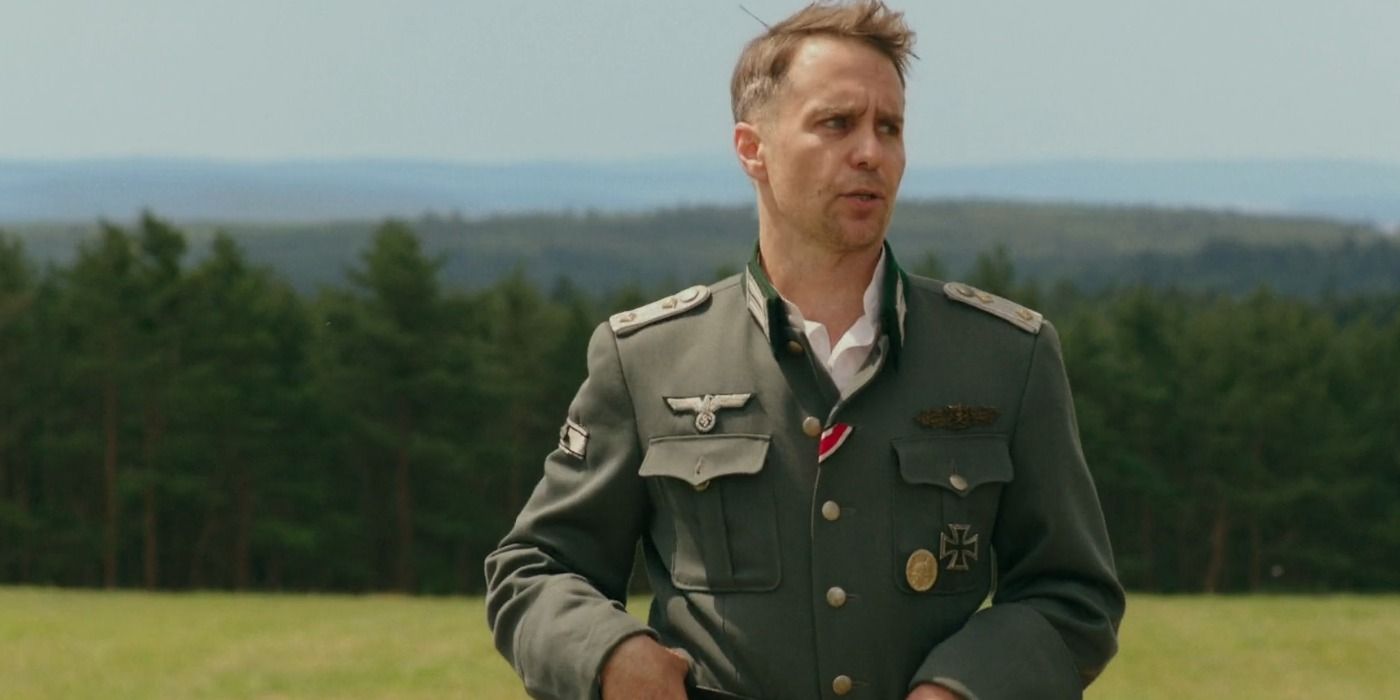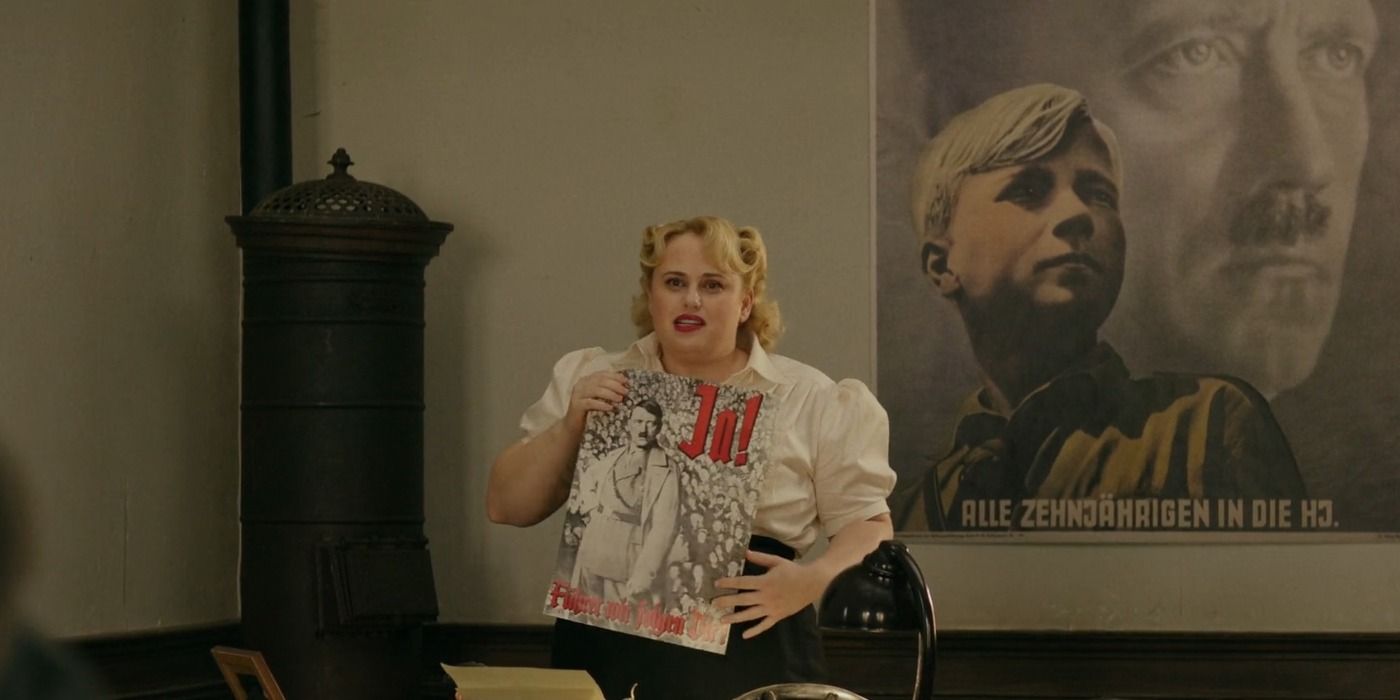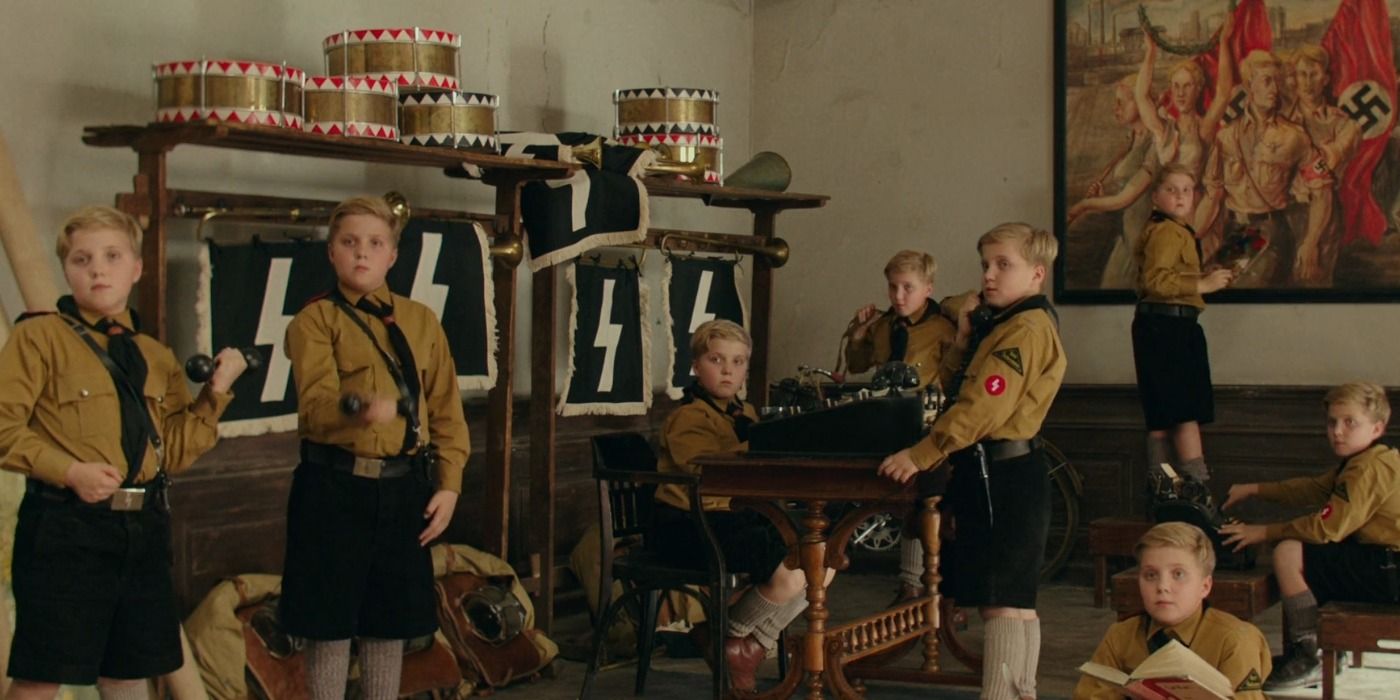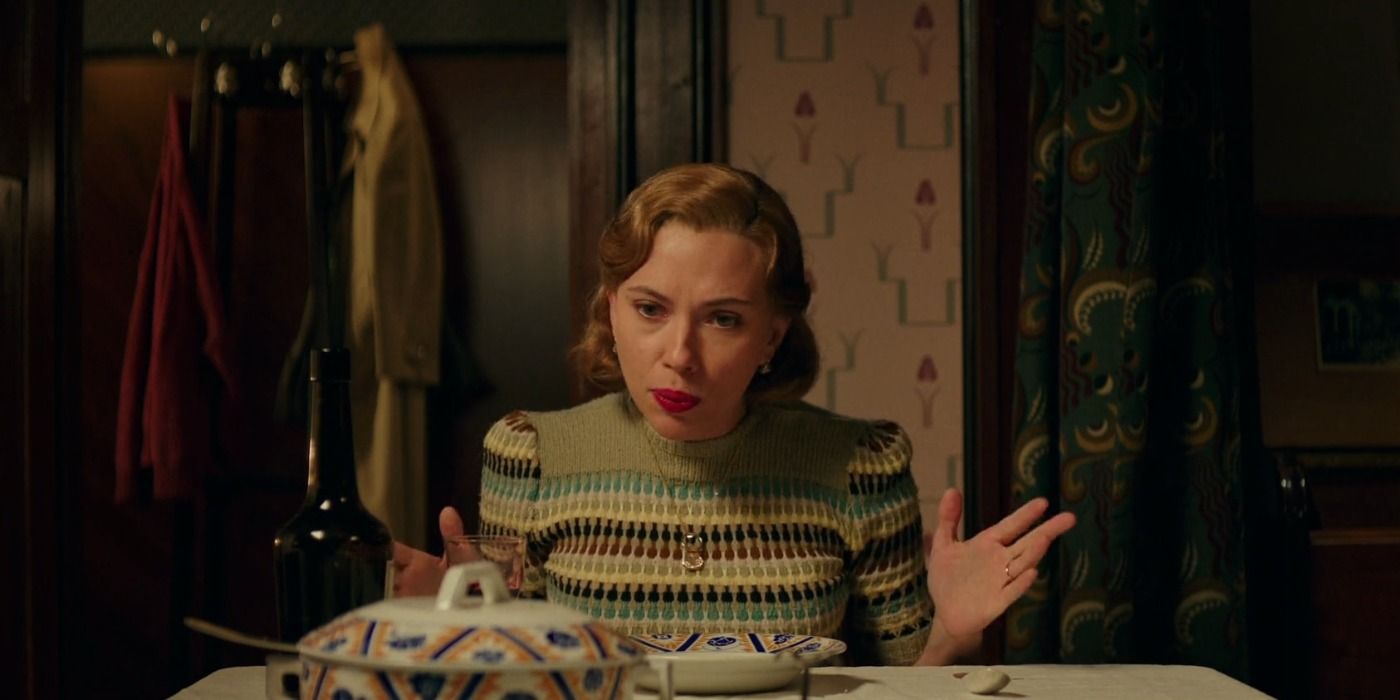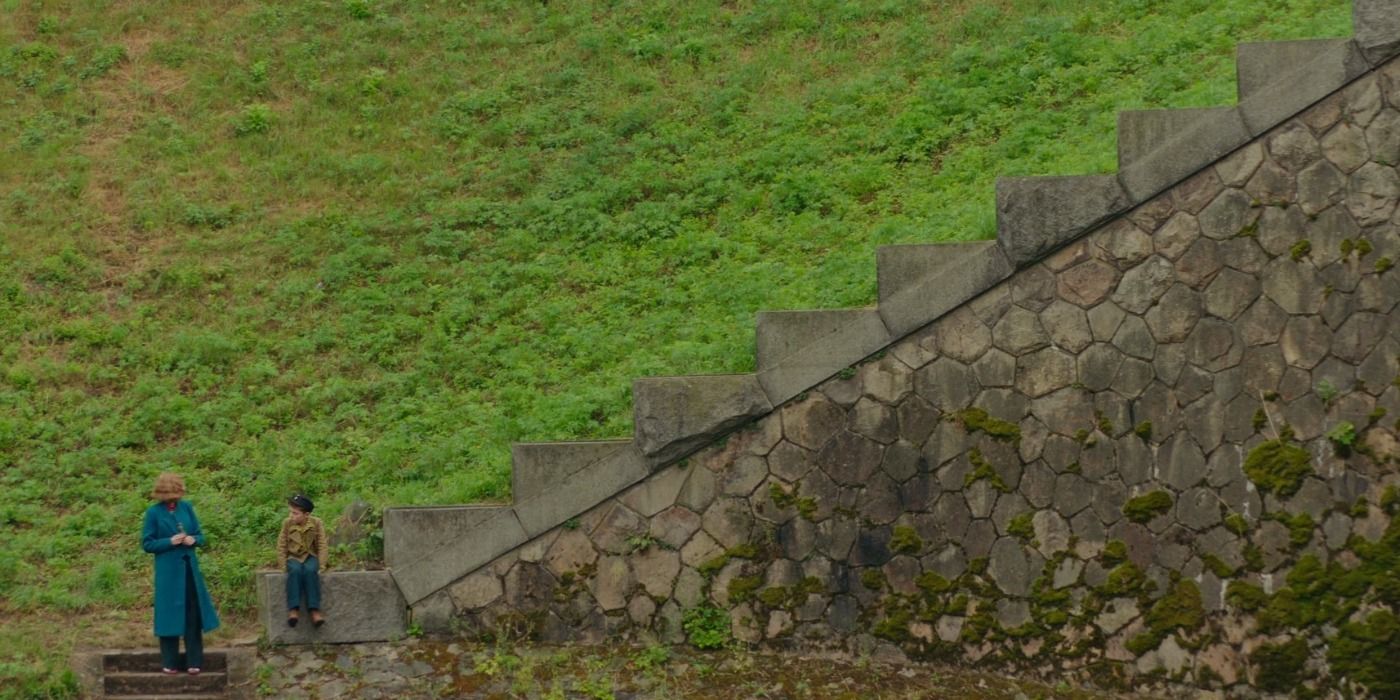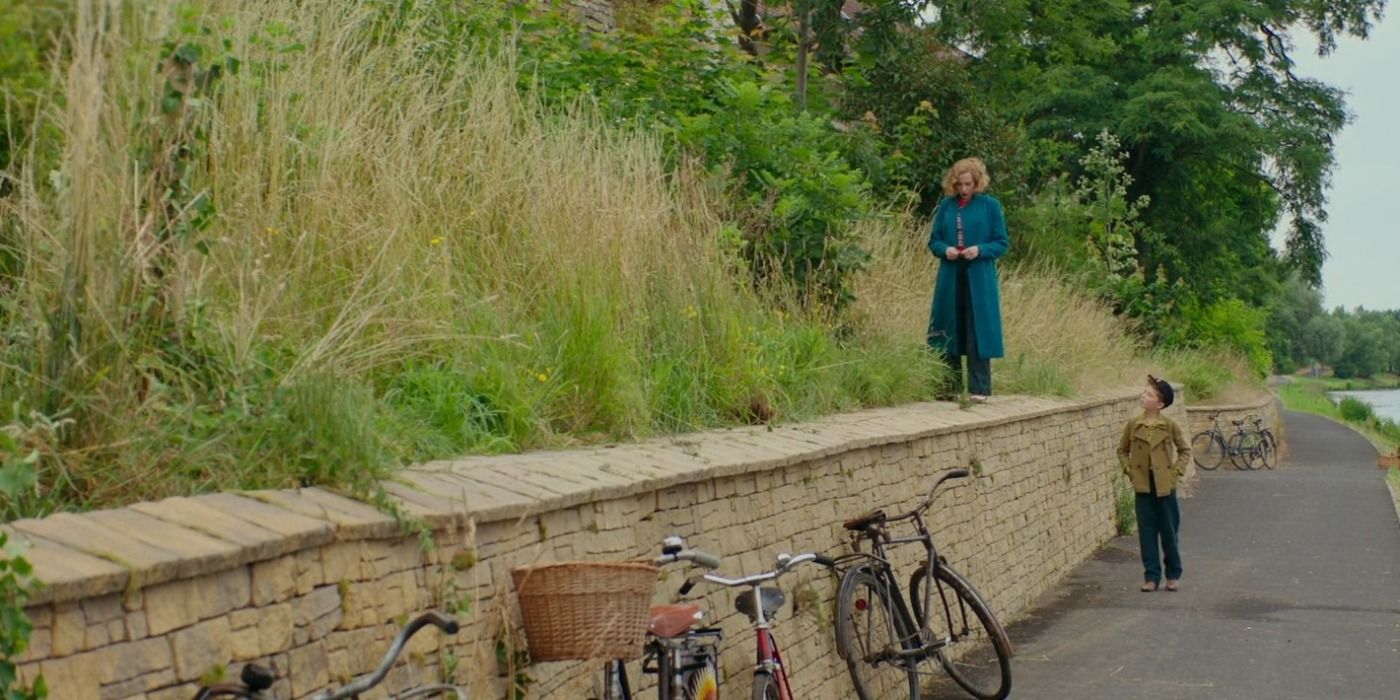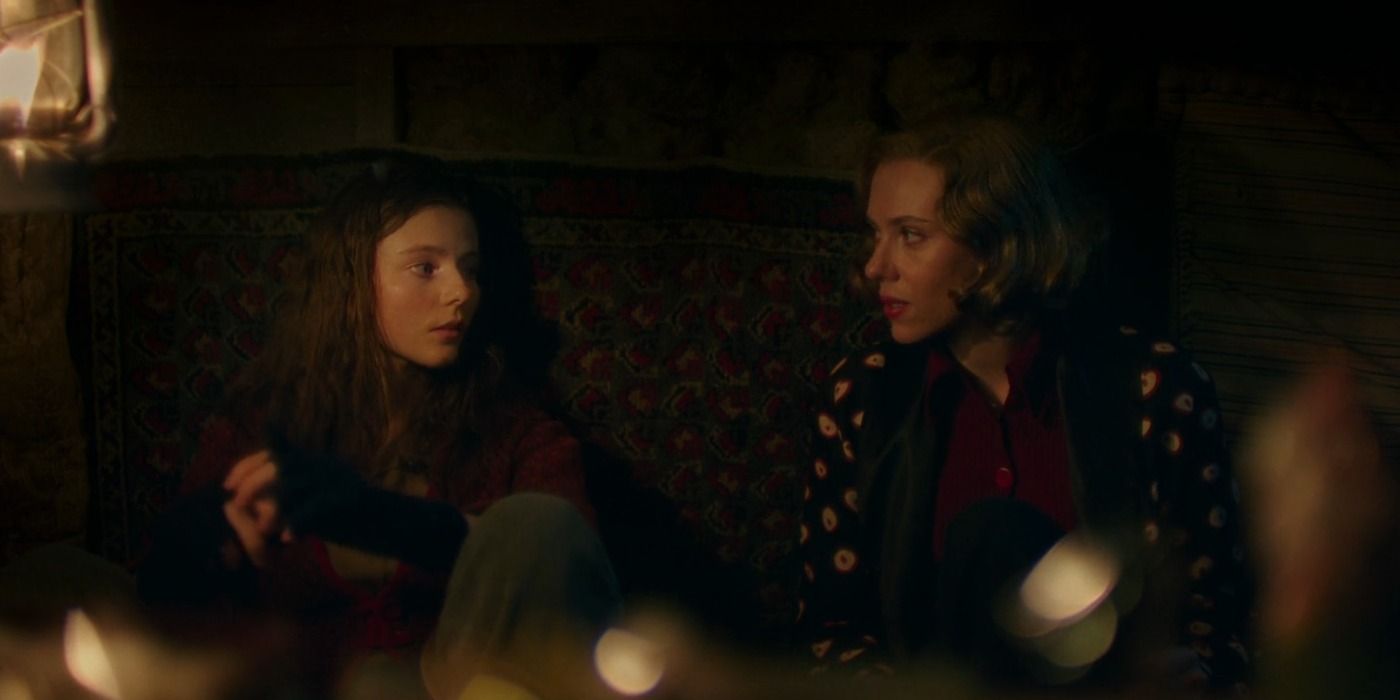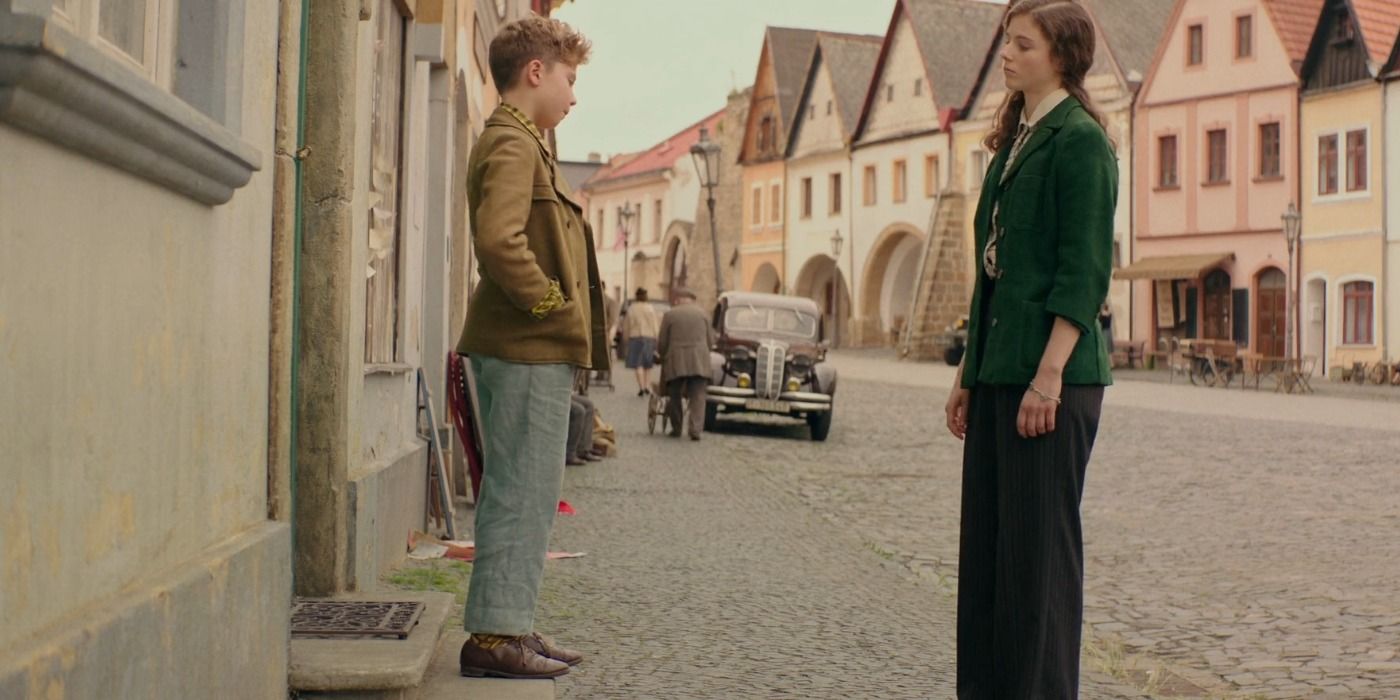Taika Waititi in his acclaimed anti-hate satire Jojo Rabbit makes Hitler and Nazi Germany the target of his witty ire. Set in the backdrop of Germany during the final days of World War II, it tells the tale of a heavily indoctrinated Hitler Youth member named Johannes Betzler aka Jojo. Still, despite its overall satirical tone, Jojo Rabbit also earned critical acclaim for retaining real historical connections to World War II.
Waititi's film uses well-crafted, hard-hitting, and impactful dialogue to drive its eccentric plot forward. Whilst viewers can easily recall hilarious quotes from Jojo Rabbit, it is time to shine a light on the impactful ones.
Role Of Women In Nazi Germany
"I Have Had Eighteen Kids For Germany." - Fräulein Rahm
This particular quote sheds light on gender segregation in Nazi Germany. Women, at the time, assumed the primary role of homemakers and caregivers. Nazis demanded women's place in the then society would be restricted to dressing wounds, homemaking, and childbearing.
Alongside Captain Klenzendorf, Rebel Wilson's Fräulein Rahm runs a local youth camp, responsible for educating and training young children. Whilst boy scouts are given military training, girl scouts are taught that women have no place in the political or professional sphere and must perform the role of caregivers.
Rally 'Round Hitler
"First Place Is Reserved For The Führer." - Johannes Betzler
Jojo Rabbit depicts the war atmosphere mostly through the imaginary conversations between its lead character, Jojo, and his cruel imaginary mentor, Hitler. Ten-year-old Jojo swears allegiance to Hilter and shows him fanatical loyalty. He is gung-ho about the Nazi regime and practically worships a man he has never met.
This quote accurately describes the power of the führer myth. It's a well-known fact that young people at the time were won over to Nazism through reinforcement in the classroom and elsewhere.
Refusal To Surrender
"And Even Though It Would Appear Our Country Is On The Back Foot... Apparently, We're Doing Just Fine." - Captain Klenzendorf
As satirical as Captain Klenzendorf's opening address to the Jungvolk is, it helps the viewers know that Nazi forces were ordered to stick it out until the very end.
Captain Klenzendorf appears lackadaisical from the very beginning of the movie and he views the elaborate war and propaganda machinery as absolutely futile. He knows that the Nazi doom appears imminent and isn't terrified to speak the truth this once.
Extensive Use Of Propaganda
"Maybe He Could Hand Out This New Propaganda." - Fräulein Rahm
Propaganda in Nazi Germany was an important weapon of war at the grassroots level. It is also a widely known fact that it was commissioned by the state to facilitate war.
The media of propaganda, which included radio, poster art, fliers, were often taken to the perverse level. The poster art in this particular scene shows the nation rallying behind Hitler. Through this quote, Fräulein Rahm essentially drives home the point that the Nazis relied heavily on propaganda and that it was key to boosting the sinister plans of the Nazi party.
Perpetuation Of Blond And Blue Beauty Ideals
"We Need Somebody To Walk The Clones." - Fräulein Rahm
At the movies' beginning, Jojo stole Captain Klenzendorf's hand grenade and ended up severely injuring himself. This also resulted in Klenzendorf and his assistants getting demoted for negligence. Despite all this, when Jojo's mother, Rosie insisted that Jojo be still given a job, Fräulein Rahm suggested he either hand out propaganda or "walk the clones."
The perpetuation of racial superiority was one of the key constituents of Hitler's propaganda. Through his speeches and writing, Hilter propagated that the Germanic race was an indistinctive mass of blond-haired, and blue-eyed people.
The Difference Between Patriotism And Jingoism
"I Love My Country, It's The War I Hate." - Rosie Betzler
As the lines continue to be blurred between patriotism and jingoism, Jojo's anti-Nazi mother, Rosie explains the difference to him through this quote. One evening at dinner, she looks particularly happy while informing her son about decisive allied victories.
Jojo is furious at the development, and only when he raises concerns about Rosie's patriotism, does she explain she finds war futile. She says as a patriot she feels the war must end soon because the sooner they have peace, the better.
Rosie And Jojo's Day Out
"Ah, These Banks Used To Be Full Of Lovers. There Was Dancing And Singing... And Romance." - Rosie Betzler
In one of the most visually breathtaking scenes in the movie, Rosie takes Jojo to the riverbank to break from the stress of war. The mother-son duo is able to have one short-lived moment of peace before things come crumbling down. Rosie's words are a powerful reminder that the war draftees (and victims) were once happy people who had dreams, and loved to live life.
As Rosie recalls the pre-war times, she tells her son the picturesque countryside was once a vibrant place full of lovers. Once again, the heavily indoctrinated child breaks his mother's reverie, by telling her war negated romance.
Rosie Worries For Her Son
"Ten-Year Olds Shouldn't Be Celebrating War And Talking Politics." -Rosie Betzler
This quote is proof that Jojo Rabbit, more than anything else is a poignant reminder of a tragic time in Germany's history. It signifies the impact of war on every aspect of children's lives. Jojo is deprived of a normal, healthy childhood, and happy family life. He has lost two of his family members to the war and as a young child is unable to talk about anything else but politics and destruction. Keeping in mind that Jojo suffers the consequences until the very end, viewers find it reasonable to deem him a child of war.
What It Means To Be A Woman
"You Look A Tiger In The Eye. And Trust Without Fear. That's What It Is To Be A Woman." - Rosie Betzler
Rosie is hiding a young Jewish girl named Elsa Korr at her place. She has lost her family, and her boyfriend is no longer alive. But more importantly, she is disillusioned with the horrors of the war, like the Betzler matriarch.
Because Elsa has spent her teenage years hiding away from the Nazis, she knows nothing about being a woman. She and Rosie have powerful dialogues in the movie. One evening after dinner, they have a meaningful conversation about womanhood and that's the bit that resonates with fans the most.
The Power Of Dance
"So, What Do We Do?" - Johannes Betzler
With Rosie and the rest of his family gone, Jojo briefly lies to Elsa about the final outcome of the war in the final scenes of the movie. Once his better sense prevails, he knows letting her go is the right thing to do.
Seconds after they step out, Elsa realizes Nazi Germany has fallen and she's free to go wherever she wishes. She slaps Jojo in the face for lying but immediately realizes it is time to dance her way into freedom. She's joined in rhythm by Jojo and the viewers gasp as Jojo Rabbit, with both its funny and shocking aspects, concludes and the final credits roll.

